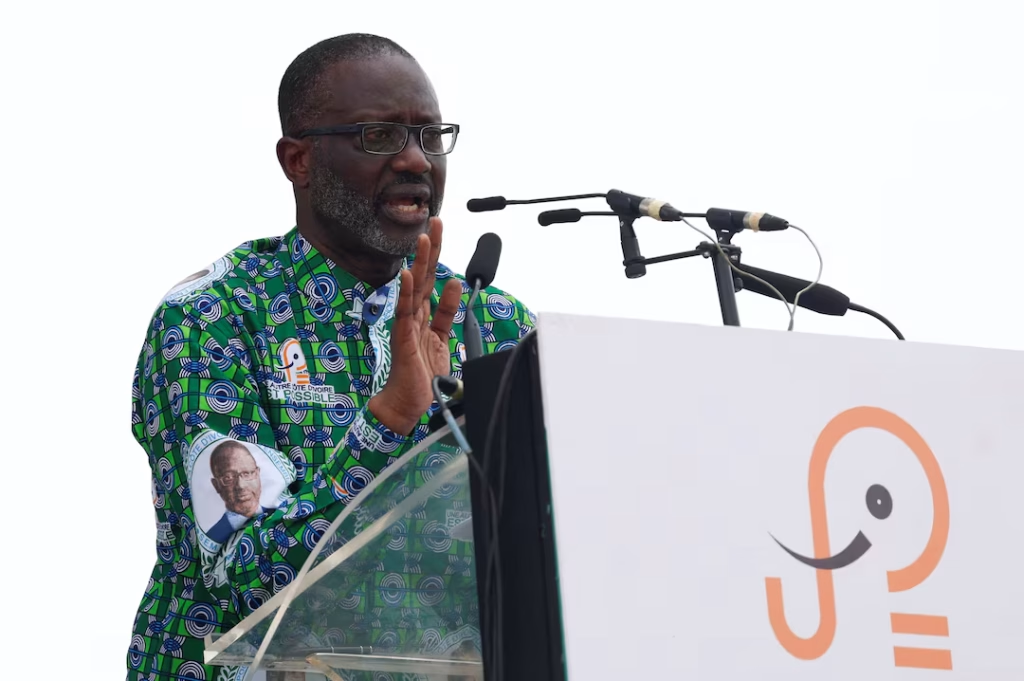Ivory Coast’s presidential race took a dramatic turn Tuesday after a court ruled that opposition figure Tidjane Thiam was ineligible to appear on the electoral roll, citing his dual nationality at the time of registration. The decision, which is final and cannot be appealed, could effectively sideline one of the country’s most prominent challengers ahead of the October vote.
Thiam, the former chief executive of Credit Suisse and current leader of the Democratic Party of Côte d’Ivoire (PDCI), had been widely seen as a serious contender against the ruling party. But the court determined that his French citizenship, held at the time he registered, rendered him ineligible under Article 48 of the Ivorian Nationality Code.
“This ruling confirms that because he held French nationality at the time of registration, he could not be considered Ivorian under the legal framework,” said Thiam’s legal counsel.
Although Thiam officially renounced his French citizenship in February—a move later confirmed in France’s official legal journal—the court ruled that it was too late to meet the constitutional requirements for candidacy. Ivory Coast law stipulates that presidential candidates must hold only Ivorian nationality at the time of registering to vote.
In a statement issued after the ruling, Thiam sharply criticized the judiciary’s role in the political process, accusing it of serving the interests of those in power rather than upholding the democratic rights of citizens.
“Ivorians look to the judiciary to safeguard the transparency and fairness of elections—not to be used as a tool to entrench power and silence legitimate competition,” Thiam said.
He described the court’s action as “democratic vandalism,” warning that such decisions threaten to erode public trust in the electoral process and disenfranchise millions.
“This is not about legal technicalities,” he added. “It’s about the deliberate exclusion of credible opposition under the illusion of due process.”
Thiam’s rise to political prominence followed his election as leader of the PDCI in 2023, rejuvenating the party’s national profile. His campaign, viewed as a challenge to the political status quo, had gained momentum among youth and urban voters.
With his disqualification, questions now swirl around the integrity of the upcoming election and the future of political competition in one of West Africa’s most strategic economies and the world’s top cocoa exporter.



